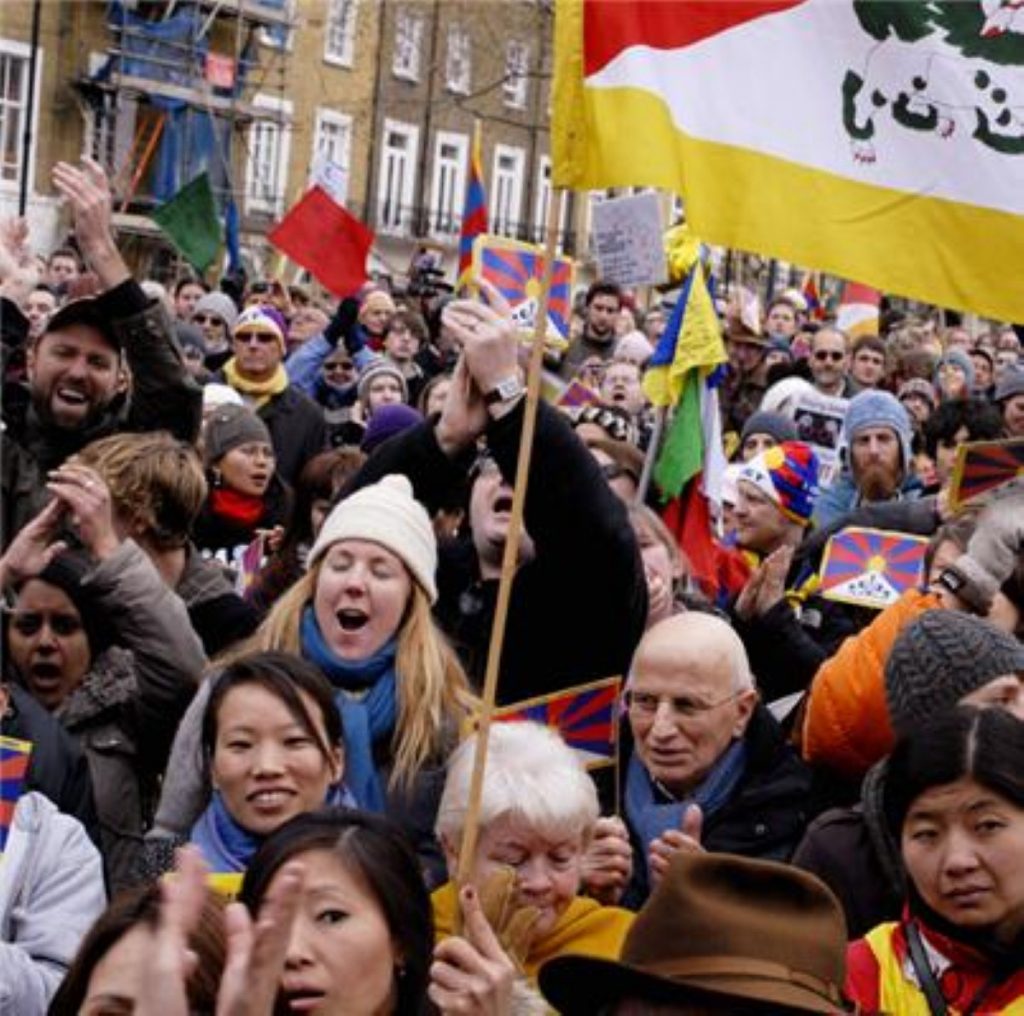Chinese visit prompts nationwide protests
By Ian Dunt
Protests are being planned across the country this weekend to coincide with the visit of Chinese premier Wen Jiabao to the UK.
Click here for analysis of premier Wen’s visit.
Click here for an interview with a UK-based Chinese human rights activist.


His visit is the latest in a series of exchanges, announced in 2004, designed to deepen bilateral relations between the two countries.
But with China up for scrutiny before the UN next month as part of the UN Universal Periodic Review, Gordon brown is facing pressure from the Chinese on one side and human rights demonstrators on the other to make clear statements on the country’s record.
“Gordon Brown and other leaders failed to press the Chinese authorities to respect human rights ahead of the Olympics,” said Kate Allen, director of Amnesty International UK.
“The result was a Games that took place against a backdrop of repression. He must not miss this opportunity to speak up for the rights of people in China.”
The UK government has made some critical statements about China, but not as much as campaigners would like.
Last week, it published its four-year strategy on China, which said: “We will be candid and honest should we disagree – on issues such as human rights, for example.”
But activists say the situation within China is not improving.
The Amnesty International website has once again been blocked inside mainland China, as are sites collecting signatures for Charter 08, a petition by academics and human rights activists calling for legal and political reform.
Search terms such as ‘freedom’, ‘human rights’, and ‘Tibet’ are filtered to censor websites.
Internet users have allegedly been imprisoned after unfair trials, often on vaguely defined charges such as subversion or leaking state secrets.
“Chinese people have as much right to free speech and access to information as everyone else, and their government should respect this,” Ms Allen added.
“This includes making up their own minds about what we are saying on the Amnesty website.”
Defence lawyers, journalists, HIV/Aids activists, workers’ rights activists, villagers protesting against land seizures, and relatives of people killed or disabled during the crackdown on the 1989 pro-democracy movement are also regularly imprisoned.
China also retains the questionable distinction of executing more people per year than any other country in the world. In 2007, at least 470 people were killed, although with real figures a closely held secret, that number is liable to be far higher.
2009 sees a resurgent activist movement build on the demonstrations which took place around the world following the torch relay before the Olympic Games last year.
It is the 20th anniversary of the Tiananmen Square massacre, the 60th anniversary of the foundation of the Chinese Republic and the 50th anniversary of the 1959 Tibetan uprising.
Free Tibet activists, who are organising the vast majority of protests this weekend, say the situation in the region remains grave.
Many areas of Tibet still remain under de facto martial law with an open military presence in many Tibetan towns.
The whereabouts of 1,000 Tibetans detained on charges relating to protests still remain unaccounted for by the Chinese government.
Director of Free Tibet, Stephanie Brigden, said: “It is like a pressure-cooker inside Tibet right now with soldiers massed in many towns, snipers on rooftops, show trials and inflammatory Chinese propaganda against the Tibetan people, all of which creates a terrifying picture of Tibet’s future.
“Much of the attention on Premier Wen’s visit has focused on the Chinese economy, but as Gordon Brown himself has acknowledged in correspondence with Free Tibet, economic growth in China – and therefore global recovery – is contingent upon China’s respect for human rights and the rule of law.
She continued: “It is imperative that the prime minister heeds his own advice and puts human rights in Tibet at the top of his agenda when meeting Wen Jiabao.”
Mr Brown will be meeting the premier outside Downing Street on Monday. That meeting will be met by vocal protests from pro-Tibetan demonstrators.
Before his first meeting with the prime minister, Premier Wen will come face-to-face with demonstrators outside the Chinese embassy on Sunday.
The Chinese premier then travels to Cambridge to deliver the prestigious Rede Lecture.
Around 100 demonstrators will travel to the university town to protest outside the building.









